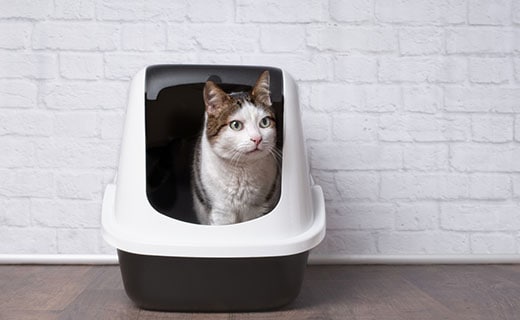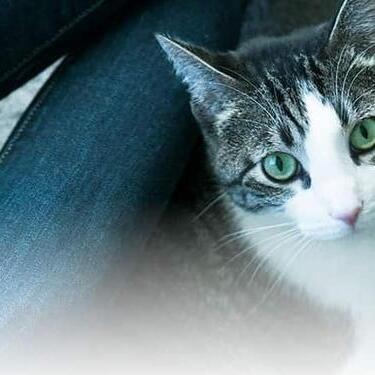
-
Find the right food for your pet
Take this quiz to see which food may be the best for your furry friend.
Find the right food for your pet
Take this quiz to see which food may be the best for your furry friend.
Featured products
 Small & Mini Savory Stew with Chicken & Vegetables Dog Food
Small & Mini Savory Stew with Chicken & Vegetables Dog FoodA delicious complement to the nutrition of Science Diet Small & Mini 7+ dog food
Shop Now Adult Healthy Cuisine Roasted Chicken, Carrots & Spinach Stew Dog Food
Adult Healthy Cuisine Roasted Chicken, Carrots & Spinach Stew Dog FoodDelicious roasted chicken paired with tender vegetables in a succulent stew
Shop Now Adult 7+ Perfect Digestion Chicken, Whole Oats & Brown Rice Recipe Dog Food
Adult 7+ Perfect Digestion Chicken, Whole Oats & Brown Rice Recipe Dog FoodScience Diet's breakthrough nutrition supports ultimate digestive well-being & healthy microbiome for dogs age 7+
Shop NowFeatured products
 Adult 7+ Senior Vitality Chicken & Vegetable Stew Cat Food
Adult 7+ Senior Vitality Chicken & Vegetable Stew Cat FoodImproves Everyday Ability to Get Up & Go
Shop Now Adult Savory Entrée Can Variety Pack Cat Food
Adult Savory Entrée Can Variety Pack Cat FoodPrecisely balanced nutrition with the delicious taste of savory minced chicken to help fuel the energy needs of cats during the prime of their life
Shop Now Adult 7+ Tender Tuna Dinner Cat Food
Adult 7+ Tender Tuna Dinner Cat FoodWith delicious chunks in a decadent gravy
Shop Now -
Dog
- Dog Tips & Articles
-
Health Category
- Weight
- Food & Environmental Sensitivities
- Urinary
- Digestive
- Joint
- Kidney
-
Life Stage
- Puppy Nutrition
- Adult Nutrition
- Senior Nutrition
Cat
- Cat Tips & Articles
-
Health Category
- Weight
- Skin & Food Sensitivities
- Urinary
- Digestive
- Kidney
-
Life Stage
- Kitten Nutrition
- Adult Nutrition
Featured articles
 Do Dogs and Cats have Belly Buttons?
Do Dogs and Cats have Belly Buttons?Learn whether cats & dogs have belly buttons like humans, what the function is, and if there are any health concerns associated with it.
Read More Why Are Dogs and Cats So Cute?
Why Are Dogs and Cats So Cute?If waggy puppy dog tails and furry kitten yawns make you swoon, you're not alone. Why are cats so cute? And, dogs too! Let's find out!
Read More Does My Pet Hate Me?
Does My Pet Hate Me?Learn tips for bonding with your pet if you've ever thought, 'My dog doesn't like me, or 'Why do I have a standoffish cat?'
Read More -


If you've noticed your cat having litter box troubles, like straining to urinate, peeing outside the box or having bloody urine, they could have a bladder infection. However, bladder infections are actually rare in cats, and it is more likely that the possible cause of these urinary troubles is a condition called feline idiopathic cystitis (FIC).
FIC in cats can be a serious problem, but don't worry. Some focused care is often all that's needed to help your cat on the road to recovery.
What Is Feline Idiopathic Cystitis?
FIC causes inflammation in the bladder with no related infection (unlike FLUTD, which is tied to an infection). The condition is similar to interstitial cystitis, also known as painful bladder syndrome, in humans. FIC actually originates in the nervous system, not the bladder.
Cats with FIC have a sensitized nervous system that has an overblown response to stress. Their brains and brain chemistry are different from those of cats that do not suffer from FIC, causing them to feel pain more intensely. Cats with FIC live in a hyperexcitable state that results in the condition.
In addition to their unique neurological features, some cats with FIC have an abnormal bladder lining that allows toxic substances to irritate the bladder and cause pain.

Risk Factors for Feline Idiopathic Cystitis
Because stress is the contributing factor to a cat developing FIC, it is important to understand underlying causes of those stresses in order to effectively help your cat.
Overweight, male cats who live indoors only and/or have nervous personalities are at higher risk of FIC. These cats are often denied the opportunity to engage in hunting behavior, which is a stress-relieving activity for cats. Other risk factors include:
- Strictly eating dry food
- Living in a household with multiple cats, where aggression or bullying among cats occurs
- Experiencing pain from other conditions, such as arthritis or skin problems
- Having to share resources such as food, water, a litter box or resting spots with other cats
- Having resources located near something that bothers them, such as a furnace, human foot traffic, etc.
Cats with a history of FIC can have flare-ups in response to changes to their environment, such as moving furniture, welcoming a new pet to the household, renovating the house or entertaining guests.
Signs of Feline Idiopathic Cystitis
Signs of FIC come and go depending on how stressed your cat is. The most common signs are:
- Straining in the litter box
- Vocalizing while urinating
- Visiting the litter box more often but only peeing small amounts
- Peeing outside the litter box
- Bloody urine
Other signs not directly related to the lower urinary tract, such as vomiting, hiding or not eating can also be related to FIC in cats.


Tasty Tips
Feline Idiopathic Cystitis Diagnosis and Treatment
Your veterinarian can diagnose FIC by conducting a physical exam as well ordering lab tests, a urine culture and/or bloodwork. Your vet will also ask you to describe the changes you've seen in your cat and any past urinary problems. FIC is also diagnosed by a cat's response to treatment.
FIC is a self-limiting condition, meaning it resolves on its own. In the meantime, your vet may prescribe your cat pain medicine. In cats who struggle with chronic or recurrent FIC, amitriptyline may help. Beyond managing the discomfort, addressing FIC means solving the underlying cause: stress. The good news is that stress is can be managed.
One helpful approach to managing stress in cats is MEMO, or multimodal environmental modification. MEMO entails taking a holistic look at your cat's environment and identifying anything that could be stressing them out. Once you identify potential stressors, you can then modify your cat's environment by eliminating them. Check out The Ohio State University's College of Veterinary Medicine helpful resources for giving your cat the environmental enrichment they need.
Can Nutrition Help With Feline Idiopathic Cystitis?
Proper nutrition is an important part of managing the health of cats with FIC. Therapeutic foods specifically formulated for urinary problems have been shown to reduce the incidence of FIC. A therapeutic cat food may be recommended by your veterinarian to help target underlying conditions related to FIC such as stress, overweight, or bladder problems.
Drinking enough water is equally important for cats with FIC. If possible, they should eat a combination of canned and dry food to increase water intake. If your cat doesn't like canned food, try moistening their dry food with water, tuna juice or low-sodium chicken broth. You can also provide them with a water fountain or flavor their water with broth or tuna juice.
By helping to manage your kitty's stress, including making adjustments to their environment to remove potential triggers, cats with FIC can live long, happy and healthy lives.


Dr. Sarah Wooten graduated from UC Davis School of Veterinary Medicine in 2002. A member of the American Society of Veterinary Journalists, Dr. Wooten divides her professional time between small animal practice in Greeley, Colorado, public speaking on associate issues, leadership, and client communication, and writing. She enjoys camping with her family, skiing, SCUBA, and participating in triathlons.
Related products

Improves Everyday Ability to Get Up & Go

Supports energy level and beautiful fur in mature cats

With delicious chunks in a decadent gravy

Precisely balanced nutrition with the delicious taste of savory minced chicken to help fuel the energy needs of cats during the prime of their life
Related articles

Brushing your cat's teeth is just as important as brushing your own. Learn signs or oral health problems in your cat and how to avoid them.

Discover the benefits of Hill's line of kitten foods and how they provide complete and balance nutrition for growing kittens.

Discover how to identify cat sensitive skin and what you can do to help your cat thrive from head to paw.

Discover which cat toys games your feline friend might like, and how they are great sources of exercise. Explore our library of articles to learn more.

Put your cat on a diet without them knowing
Our low calorie formula helps you control your cat's weight. It's packed with high-quality protein for building lean muscles, and made with purposeful ingredients for a flavorful, nutritious meal. Clinically proven antioxidants, Vitamin C+E, help promote a healthy immune system.
Put your cat on a diet without them knowing
Our low calorie formula helps you control your cat's weight. It's packed with high-quality protein for building lean muscles, and made with purposeful ingredients for a flavorful, nutritious meal. Clinically proven antioxidants, Vitamin C+E, help promote a healthy immune system.

